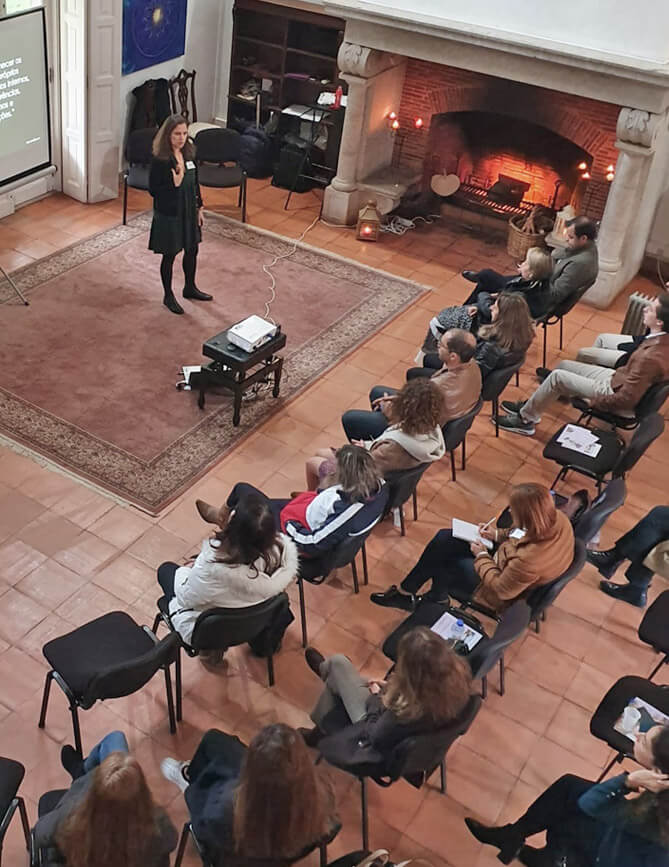Today, I share with you one of the mindfulness integrated practices that I like the most and that I feel has a huge impact on the way we relate to ourselves and with others: conscious listening.
Most of us probably spend the day communicating with other people and feeling that we listen to them. In fact, studies indicate that our ability to pay attention has greatly decreased in recent years and that, on average, we have about 25% efficiency in our listening. They also indicate that most people overestimate their ability to listen.
We know from experience that being heard is one of the greatest gifts we can receive and is essential to create connection. Presence, curiosity, attention, silence, equal value, compassion … are some of the components of an attentive and present listening.
Tara Bach, American psychologist, author of several books and recognized meditation facilitator, especially in the area of emotional management, says that LISTENING is not just a characteristic to learn to be a more conscious person. It is a profound and fundamental competence. She also proposes some strategies for all those who want to improve their communication and listening skills:
- Define an intention to listen to someone in a more present and conscious way. It is difficult to do with anyone and every moment, so we can define the intention to practice it with someone in particular.
- Reflect on the intention of the conversation. What do I want from here? Impress the person? Approval from the person? Prove my reason? Any “agenda” that we take to a conversation already reduces our ability to listen.
- Notice how we feel about the conversation. What emotions? What feelings? The openness to listen to others often makes us more uncomfortable and vulnerable because we do not “predict” how we will react.
- Offer “presence” during the conversation. Maintaining “internal listening” is essential for us to be balanced and centered while listening to each other. We can momentarily bring attention to our body, our feet or our breath.
- Coach ourselves. Maintaining listening skills during a conversation is sometimes not easy. To help, we can bring to our mind some phrases like: “I hear what you say”, “This is important”; “It’s okay, I have time”.
- To listen focusing on what the other is saying, kindly observing the distractions that arise: other thoughts that have nothing to do with the conversation, getting into interpretations or judgments, self-thoughts (I don’t have time, etc …).
Listening is, for most of us, a natural act, but listening attentively and mindfully requires practice and intention. Let’s try?
“Listening is to gently lean in with the desire to be changed by what we hear”
Mark Neppo

